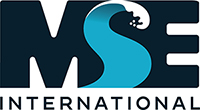SPIDS project overview
Posted 2020-04-01 13:08:41 by Admin
 The programme is supporting companies in developing new technology to deliver clean, sustainable energy to the ships of the future.
The programme is supporting companies in developing new technology to deliver clean, sustainable energy to the ships of the future.Sea transport depends almost entirely on fossil fuel, which has high CO2 and particulates emissions. Ships are one of the world’s most polluting forms of transport and contribute greatly to poor air quality in port towns. Other than sails, the only emissions free way to power ships is by electrification. But there are two big challenges in that:
* this will need low-cost batteries with enough endurance for a sea voyage: so far, batteries have only been used in hybrid powered ships or short-haul ferries
* the power for re-charging ships’ batteries for long voyages, during their brief stays in port, would be beyond what any port could presently provide
The SPIDS project aims to overcome these two challenges through combining the use of flow batteries and a rapid pump system. Flow batteries store energy in charged liquid electrolytes, stored in tanks. The size of the tanks is independent of the power rating of the battery’s cells, so the range of the vessel can be extended with just the additional cost of more tank structure and electrolyte.
The ship’s flow batteries will be charged by rapidly pumping out the used electrolytes and pumping in new. Then the used electrolyte can be refreshed over a longer time scale, in an onshore charging facility.
Swanbarton and Marine South East are developing the technical and commercial feasibility of shore-based rapid charging systems for vessels using flow batteries.
Swanbarton will use its specialist knowledge of flow batteries, along with its experience with large-scale battery energy storage systems to optimise the size of the shore charging facility. MSE will provide specialist knowledge of shipping and port operations.
The work addresses all four of DfT’s priorities: boosting economic growth; improving journeys; making transport safer, more secure and sustainable; and relieving the UK’s port cities from ship-borne air pollution. As shipping is a worldwide industry, there is considerable opportunity to apply our work in export markets.
Swanbarton are experts in flow battery technology and founders of the International Flow Battery Forum.


